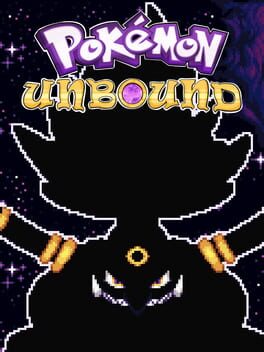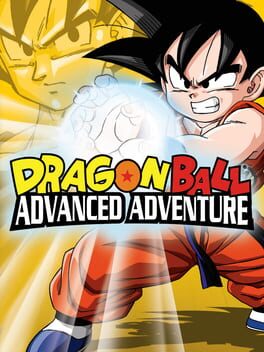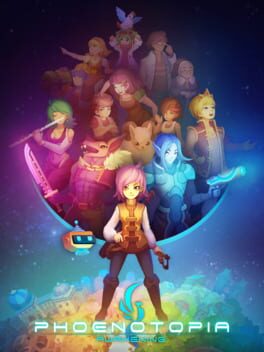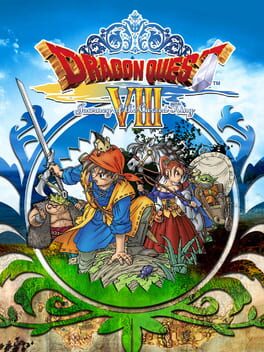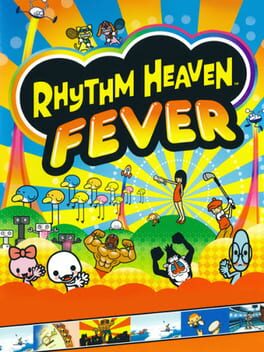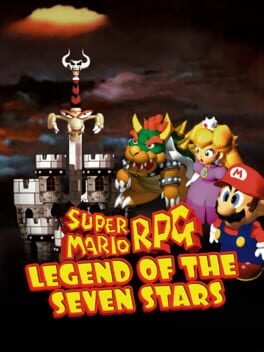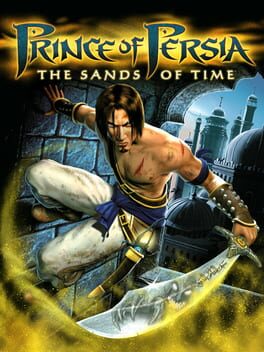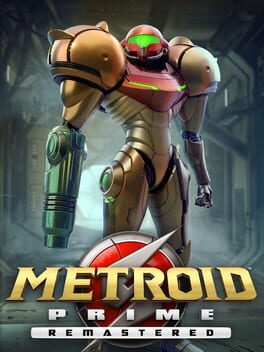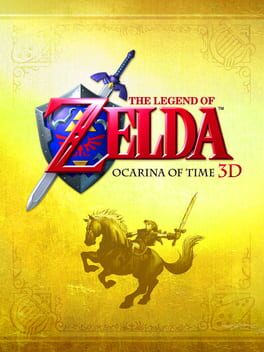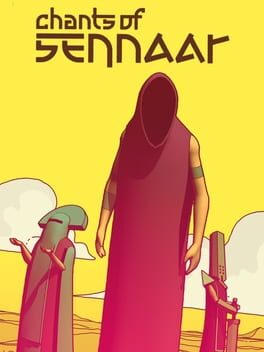slagghi
2020
Without a doubt one of the most refined Pokémon experiences out there. Its only weak points are some pacing and tone issues with the main quest. I didn't really feel engaged with the story or the characters, and some plot points were overly edgy for the Pokémon brand. The "side quests" are also unimaginative and boring, basically chores. But they are also completely optional so I can't complain too much. Other than that, I had a blast.
There are a ton of quality of life improvements, a varied and interesting region, a buttload of team building capabilities with the sheer number of available Pokémon, and a level curve that is just chef's kiss. With the level cap feature and the exp share, I never had to grind, and I could reshuffle my team with next to no setbacks in term of playtime.
Last but not least, the polish. This game feels like an honest-to-god successor of the gen3 games, what feels like Pokémon would have naturally evolved into if it never moved away from the GBA. It reaches game freak's heights, and surpasses pretty much any Pokémon game that came out in the last decade or so.
There are a ton of quality of life improvements, a varied and interesting region, a buttload of team building capabilities with the sheer number of available Pokémon, and a level curve that is just chef's kiss. With the level cap feature and the exp share, I never had to grind, and I could reshuffle my team with next to no setbacks in term of playtime.
Last but not least, the polish. This game feels like an honest-to-god successor of the gen3 games, what feels like Pokémon would have naturally evolved into if it never moved away from the GBA. It reaches game freak's heights, and surpasses pretty much any Pokémon game that came out in the last decade or so.
Cute little licensed game. Nothing too fancy or complicated: the combat is streamlined and button-mashy (and that's normal, considering this is a gba game), the level design is often uninspired and sometimes a bit confusing. The music is nothing to write home about.
Stages are divided into normal sidescrolling beat-em-ups, flying stages, duels (with a different control scheme and fighting game mechanics), and some minigames. For such a short game, this is quite a lot of varety.
What really shines is the love for the source material, especially the incredible spritework and animation. For each and every saga depicted (from the start of the series, through the red ribbon arc and finally the evil king piccolo arc), the developers nailed the aesthetics of stages and bosses. I have some nitpicks, since the story has been condensed and altered, sometimes reasonably (I can understand why they wouldn't include Bulma flashing Muten in exchange for a dragonball), sometimes less reasonably (Goku loses both of the tenkaichi tournaments featured in this story, I don't get why they made him win them in this game).
But that's not really important, it doesn't take away from the charm of having such an underrated and under-represented part of the dragonball franchise immortalised in a short little (though somewhat unpolished) game.
Stages are divided into normal sidescrolling beat-em-ups, flying stages, duels (with a different control scheme and fighting game mechanics), and some minigames. For such a short game, this is quite a lot of varety.
What really shines is the love for the source material, especially the incredible spritework and animation. For each and every saga depicted (from the start of the series, through the red ribbon arc and finally the evil king piccolo arc), the developers nailed the aesthetics of stages and bosses. I have some nitpicks, since the story has been condensed and altered, sometimes reasonably (I can understand why they wouldn't include Bulma flashing Muten in exchange for a dragonball), sometimes less reasonably (Goku loses both of the tenkaichi tournaments featured in this story, I don't get why they made him win them in this game).
But that's not really important, it doesn't take away from the charm of having such an underrated and under-represented part of the dragonball franchise immortalised in a short little (though somewhat unpolished) game.
This completely failed to grab me, and I abandoned it in record time, multiple times. I was captivated by this game's gorgeous visuals, but unfortunately that ended up being the only feature I would end up enjoying (that and sometimes the music). I don't dislike the gameplay, story and exploration, sure. But it all fills me with an overwhelming sense of meh.
The controls are ever-so-slightly janky, the inventory management is cumbersome, the exploration is largely unrewarding, and the towns. Oh moy god the towns. They are huge. Well, not really, but they feel huge, and not in a "wow, this place is huge!" sense, but more of a "oh god, there's more?" vibe.
The environment are charming and detailed, sure, but there is so much fluff, so many houses to trespass with nothing to find in them, so many people to talk to who have nothing substantial to say.
The overworld is interesting in theory, with how it incorporates Zelda II's encounter mechanics. But even that idea is explored in a very shallow way.
It all feels so superficial and unoriginal, I tried to pick it up in three different instances and it managed to bore me in a couple of play sessions every single time. Two years later, I'm calling it. This was the final chance for this game to impress me. It's just not for me, I guess.
The controls are ever-so-slightly janky, the inventory management is cumbersome, the exploration is largely unrewarding, and the towns. Oh moy god the towns. They are huge. Well, not really, but they feel huge, and not in a "wow, this place is huge!" sense, but more of a "oh god, there's more?" vibe.
The environment are charming and detailed, sure, but there is so much fluff, so many houses to trespass with nothing to find in them, so many people to talk to who have nothing substantial to say.
The overworld is interesting in theory, with how it incorporates Zelda II's encounter mechanics. But even that idea is explored in a very shallow way.
It all feels so superficial and unoriginal, I tried to pick it up in three different instances and it managed to bore me in a couple of play sessions every single time. Two years later, I'm calling it. This was the final chance for this game to impress me. It's just not for me, I guess.
As usual, dragon quest is a pure, distilled jrpg experience. It will never surprise or challenge the player with innovative mechanics, but it will provide some of the most meticuloisly refined turn-based mechanics out there.
I particularly loved the aesthetics on this one: the cel-shaded look is enchanting and timeless. The characters also shine, both in design and in personality. Most of the characterisation is conveyed through party banter and bickering that is somewhat sparse, but always charming. Some characterisation ilfor the main character is also conveyed through mechanics, i.e. his immunity to curses and cursed equipment, which cleverly hints at some mystery about him. That is a really good touch.
Combat is nothing surprising, but it is quite well crafted and balanced. The only spark of uniqueness it has is the "psyche up" system, which lends more than a few opportunities for tactical play.
Basically no grinding is required, each character grows into a useful role, and getting them to work together in synergy is quite satisfying. As a side point, only having 4 party members is a design choice that I wholeheartedly support: it makes the game more focus and doesn't force the player to choose what characters will be left to rot on the bench.
Having only played DQXI to its completion before this game, I was left a bit disappointed by VIII in some regards, mainly the town designs, which are a lot more generic than XI. But I guess that's an unfair criticism, as XI came out a decade later.
The main drawback of this game is its length. It took me 60 hours to finish it, and it really didn't need to be this long. I caught up with Dhoulmagus (the big overarching objective of the first half of the game) at about the 35 hour mark, and I feel that this was a great place to end it. Little did I know, I was barely halfway through, and the second half would be just more of the same, repeated as nauseam.
If you'd allow me a (badly crafted) metaphor, DQ to me is like a fine steak. It doesn't need fancy toppings or sides, just some salt and pepper, it lets the flavour of the top-quality meat speak for itself. No fancy mechanics, no experimentation, just finely crafted jrpg-ing. Unfortunately, though, this steak is, like, 2kg of meat. It's way too much for one person, and even the most rich and succulent cut of meat you ever had is going to tire you after eating that much.
I particularly loved the aesthetics on this one: the cel-shaded look is enchanting and timeless. The characters also shine, both in design and in personality. Most of the characterisation is conveyed through party banter and bickering that is somewhat sparse, but always charming. Some characterisation ilfor the main character is also conveyed through mechanics, i.e. his immunity to curses and cursed equipment, which cleverly hints at some mystery about him. That is a really good touch.
Combat is nothing surprising, but it is quite well crafted and balanced. The only spark of uniqueness it has is the "psyche up" system, which lends more than a few opportunities for tactical play.
Basically no grinding is required, each character grows into a useful role, and getting them to work together in synergy is quite satisfying. As a side point, only having 4 party members is a design choice that I wholeheartedly support: it makes the game more focus and doesn't force the player to choose what characters will be left to rot on the bench.
Having only played DQXI to its completion before this game, I was left a bit disappointed by VIII in some regards, mainly the town designs, which are a lot more generic than XI. But I guess that's an unfair criticism, as XI came out a decade later.
The main drawback of this game is its length. It took me 60 hours to finish it, and it really didn't need to be this long. I caught up with Dhoulmagus (the big overarching objective of the first half of the game) at about the 35 hour mark, and I feel that this was a great place to end it. Little did I know, I was barely halfway through, and the second half would be just more of the same, repeated as nauseam.
If you'd allow me a (badly crafted) metaphor, DQ to me is like a fine steak. It doesn't need fancy toppings or sides, just some salt and pepper, it lets the flavour of the top-quality meat speak for itself. No fancy mechanics, no experimentation, just finely crafted jrpg-ing. Unfortunately, though, this steak is, like, 2kg of meat. It's way too much for one person, and even the most rich and succulent cut of meat you ever had is going to tire you after eating that much.
2022
I'm a huge history nerd, and Name of the Rose is one of my favourite novels, so this game seems tailor-made for my interests. And I loved a lot of it, specifically the love and care that went into depicting a vibrant and lively sixteenth century Bavaria. All the little details, the amanuensis aesthetic, the different fonts people speak in, the "glossary" being actual annotations on the "game book" all contribute to making this game's world feel alive, genuine, and lovely. The historical references are on point, and they allow the main themes of the story, such as legacy, historical preservation and class struggle, to shine through.
I also loved the "traits" you can give your character, as they really matter in conversation and plot events. My Andreas was a latinist and an orator, and that helped him in several occasions.
I unfortunately found some parts of the game to be amazing too look at and to ponder on, but not as fun to play through. Solving the mysteries seems sometimes unfulfilling, since you don't have enough information to "get it right", and the final reveal feels a bit underwhelming (and derivative, if you read Name of the Rose), and it makes your efforts up to then seem kind of pointless. The third act also feels a bit long winded and verbose, almost watering down a story that frankly should have been coming to a conclusion much sooner, in my opinion.
These are somewhat minor complaints, though, as I quite enjoyed my time with this game and I wouldn't hesitate to recommend it to someone.
I also loved the "traits" you can give your character, as they really matter in conversation and plot events. My Andreas was a latinist and an orator, and that helped him in several occasions.
I unfortunately found some parts of the game to be amazing too look at and to ponder on, but not as fun to play through. Solving the mysteries seems sometimes unfulfilling, since you don't have enough information to "get it right", and the final reveal feels a bit underwhelming (and derivative, if you read Name of the Rose), and it makes your efforts up to then seem kind of pointless. The third act also feels a bit long winded and verbose, almost watering down a story that frankly should have been coming to a conclusion much sooner, in my opinion.
These are somewhat minor complaints, though, as I quite enjoyed my time with this game and I wouldn't hesitate to recommend it to someone.
2011
I love this kind of stuff. Each and every one of the rhythm minigames has an ingenious and insane concept, challenging your reflexes and sense of rhythm every step of the way.
The medal system is the perfect way to encourage the player to get better at the game: it doesn't require perfection, but it rewards you when it's clear that you got the feel of each minigame and made it yours.
I won't give it a perfect score because sometimes, in the latter levels, the game can be a bit stingy with medals, only allowing you a couple of mistakes per minigame. Also, among the sea of awesome mini games, there are a couple of stinkers. Mainly the love rap minigames. I now loathe the words "fo' sho".
Other than that, this is just pure, distilled fun. Play it!
The medal system is the perfect way to encourage the player to get better at the game: it doesn't require perfection, but it rewards you when it's clear that you got the feel of each minigame and made it yours.
I won't give it a perfect score because sometimes, in the latter levels, the game can be a bit stingy with medals, only allowing you a couple of mistakes per minigame. Also, among the sea of awesome mini games, there are a couple of stinkers. Mainly the love rap minigames. I now loathe the words "fo' sho".
Other than that, this is just pure, distilled fun. Play it!
This is a rare DNF for me, it never happens with mario games, rpg or otherwise.
I just couldn't be bothered to continue. The aesthetics are bland and ugly, the character/enemy designs are out of place in what is supposed to be a quirky way, but it just feels jarring to me. Enemy and boss designs are as forgettable as it gets.
Gameplay is fine, but it is miles behind any other mario rpg. Combat QTEs are poorly communicated and the timing often feels arbitrary. If you don't have a manual you basically won't be able to know what any status effect does, or even what they look like.
The game progression is a bog-standard maguffin hunt, in a world that is a beeline of uninspired areas one after another, each and every one ruined by the godawful art style and confusing isometric perspective.
The main cast has some interesting character designs, but that's it. You can barely even call them characters, they have basically no personality, dialog or development.
I reached the point where you get the sixth star and just gave up out of pure boredom.
I know this is a highly revered game, and I'm sure that it has charmed many people. Unfortunately, I just can't see the appeal.
I just couldn't be bothered to continue. The aesthetics are bland and ugly, the character/enemy designs are out of place in what is supposed to be a quirky way, but it just feels jarring to me. Enemy and boss designs are as forgettable as it gets.
Gameplay is fine, but it is miles behind any other mario rpg. Combat QTEs are poorly communicated and the timing often feels arbitrary. If you don't have a manual you basically won't be able to know what any status effect does, or even what they look like.
The game progression is a bog-standard maguffin hunt, in a world that is a beeline of uninspired areas one after another, each and every one ruined by the godawful art style and confusing isometric perspective.
The main cast has some interesting character designs, but that's it. You can barely even call them characters, they have basically no personality, dialog or development.
I reached the point where you get the sixth star and just gave up out of pure boredom.
I know this is a highly revered game, and I'm sure that it has charmed many people. Unfortunately, I just can't see the appeal.
I'm amazed that this game isn't revered as one of the most influential of its time. Its movement mechanics were years ahead of everything else on the market, and were an unmistakable inspiration for a lot of modern games, from uncharted to assassin's creed.
Unfortunately the combat system hasn't aged as well, as I found it confusing and button-mashy. Nevertheless, the enjoyable "transversal puzzles" and the incredibly well designed levels, as well as the impeccable atmosphere and art design make this a truly memorable game.
Unfortunately the combat system hasn't aged as well, as I found it confusing and button-mashy. Nevertheless, the enjoyable "transversal puzzles" and the incredibly well designed levels, as well as the impeccable atmosphere and art design make this a truly memorable game.
As a huge fan of the 2d Metroid series, I don't know why it took me this long to try out Metroid prime. Predictably, I loved it. It captures and translates that feeling of exploration and loneliness, bringing it effortlessly into the third dimension.
Though this translation isn't always perfect, and sometimes something is lost: precision platforming and combat are way clunkier than, say, Metroid fusion or zero Mission. But on the other hand, a lot is gained from the third dimension, mainly immersion and atmosphere.
The choice of making Samus' visor fog up, glitch, and reflect her eyes is incredibly effective in pulling the player into the world of Tallon IV.
There were a few blemishes here and there, mainly the backtracking, while rewarding at times, it often feels excessive, which hurts the pacing a bit. And as mentioned, combat is clunky and cumbersome, and sometimes you get hit through apparently no fault of your own.
These flaws are unfortunately exacerbated in the last section of the game. You have to hunt down 12 chozo artifacts, some of which are well hidden, while others are obtusely tucked away in unnecessarily hard to find spots. This makes you backtrack all over the map, encountering the same enemies again and again, which you are unfortunately better off to just skip.
I would have appreciated if these artifacts were optional (maybe for a "true ending"), or if the game stopped spawning enemies until after a while.
Also, the final area is abysmal, littered with the worse enemy design in the series so far: the fission Metroid. These enemies are annoying, bullet-spongy, immune to all-bug-one of your weapons (and it's not always the same weapon, so you'll have to switch around a lot), and they infinitely respawn in the last area. Add to this the fact that you have to do a lot of precision platforming, while being constantly pelted by these pests and you can see how I loathe this section.
I also am not a fan of dark areas, where you are forced to use x-ray and thermal visors, which are frankly just ugly.
Apart from this, I thoroughly enjoyed my time on Tallion IV. Had the game been a tad shorter, with a little less enemies and backtracking, it would be a masterpiece in my book.
Though this translation isn't always perfect, and sometimes something is lost: precision platforming and combat are way clunkier than, say, Metroid fusion or zero Mission. But on the other hand, a lot is gained from the third dimension, mainly immersion and atmosphere.
The choice of making Samus' visor fog up, glitch, and reflect her eyes is incredibly effective in pulling the player into the world of Tallon IV.
There were a few blemishes here and there, mainly the backtracking, while rewarding at times, it often feels excessive, which hurts the pacing a bit. And as mentioned, combat is clunky and cumbersome, and sometimes you get hit through apparently no fault of your own.
These flaws are unfortunately exacerbated in the last section of the game. You have to hunt down 12 chozo artifacts, some of which are well hidden, while others are obtusely tucked away in unnecessarily hard to find spots. This makes you backtrack all over the map, encountering the same enemies again and again, which you are unfortunately better off to just skip.
I would have appreciated if these artifacts were optional (maybe for a "true ending"), or if the game stopped spawning enemies until after a while.
Also, the final area is abysmal, littered with the worse enemy design in the series so far: the fission Metroid. These enemies are annoying, bullet-spongy, immune to all-bug-one of your weapons (and it's not always the same weapon, so you'll have to switch around a lot), and they infinitely respawn in the last area. Add to this the fact that you have to do a lot of precision platforming, while being constantly pelted by these pests and you can see how I loathe this section.
I also am not a fan of dark areas, where you are forced to use x-ray and thermal visors, which are frankly just ugly.
Apart from this, I thoroughly enjoyed my time on Tallion IV. Had the game been a tad shorter, with a little less enemies and backtracking, it would be a masterpiece in my book.
I get that the release of this game was a huge paradigm shift for the world of gaming, a watershed moment that changed the medium forever.
As someone who has never played this game, and didn't have a N64 to experience this momentous release at the time, ocarina of time left me somewhat underwhelmed.
It is all sorts of janky, combat is abysmal and puzzles range from uninventive to nonsensical. Exploration also left me with a sour taste in my mouth, as the overworld consists mostly of a barren open field with next to no interesting landmarks to it. Everything this game did, A Link to the Past did better, IMHO.
With one exception: the sense of scale and adventure. I would be lying if I said that the whole experience didn't feel like a compelling coming-of-age story, with huge and epic stakes (and impeccable music).
It's still a good game, and I would probably be revering it as one of the best of all time, had I played it at release. Alas, I didn't, so I don't have such high praise.
As someone who has never played this game, and didn't have a N64 to experience this momentous release at the time, ocarina of time left me somewhat underwhelmed.
It is all sorts of janky, combat is abysmal and puzzles range from uninventive to nonsensical. Exploration also left me with a sour taste in my mouth, as the overworld consists mostly of a barren open field with next to no interesting landmarks to it. Everything this game did, A Link to the Past did better, IMHO.
With one exception: the sense of scale and adventure. I would be lying if I said that the whole experience didn't feel like a compelling coming-of-age story, with huge and epic stakes (and impeccable music).
It's still a good game, and I would probably be revering it as one of the best of all time, had I played it at release. Alas, I didn't, so I don't have such high praise.
2023
A fantastic little puzzle game that is all about linguistics: I never knew I needed such a thing until I played it.
In this game, you have to climb a tower (clearly inspired by the tower of Babel) inhabited by a lot of different and colorful civilisations. Here's the kicker, though: they all speak foreign languages, each with their own alphabet. And you know none of them.
Your main objective throughout the game is to ascend this tower, and to do that you'll have to make sense of these foreign languages by process of deduction, by picking up contextual clues, and sometime by good ol' guesswork.
The languages are simplistic (for gameplay's sake), but ingeniously designed and "realistic". For example, at one point you might notice that glyphs that indicate verbs have similar shapes. Or that (slight spoiler warning) the glyph for "to speak" is similar to the word for "preacher", which it makes a lot of sense.
By ascending the tower you'll come in contact with different peoples, you'll solve several little puzzles, and you'll wander around a lot. And I mean a lot.
The graphic design and aesthetics are phenomenal, but sometimes areas look a bit samey and you'll definitely get lost more than a few times. Sometimes the amount of backtracking that the game asks you to do is a bit too much, especially since some areas are huge and fast travel options are limited.
There are also some stealth sections that are a bit shallow and out of place, I would have preferred if the game didn't have them.
Nonetheless, I thoroughly enjoyed my time with this game, this is one of the best puzzle games I played in a long while.
In this game, you have to climb a tower (clearly inspired by the tower of Babel) inhabited by a lot of different and colorful civilisations. Here's the kicker, though: they all speak foreign languages, each with their own alphabet. And you know none of them.
Your main objective throughout the game is to ascend this tower, and to do that you'll have to make sense of these foreign languages by process of deduction, by picking up contextual clues, and sometime by good ol' guesswork.
The languages are simplistic (for gameplay's sake), but ingeniously designed and "realistic". For example, at one point you might notice that glyphs that indicate verbs have similar shapes. Or that (slight spoiler warning) the glyph for "to speak" is similar to the word for "preacher", which it makes a lot of sense.
By ascending the tower you'll come in contact with different peoples, you'll solve several little puzzles, and you'll wander around a lot. And I mean a lot.
The graphic design and aesthetics are phenomenal, but sometimes areas look a bit samey and you'll definitely get lost more than a few times. Sometimes the amount of backtracking that the game asks you to do is a bit too much, especially since some areas are huge and fast travel options are limited.
There are also some stealth sections that are a bit shallow and out of place, I would have preferred if the game didn't have them.
Nonetheless, I thoroughly enjoyed my time with this game, this is one of the best puzzle games I played in a long while.
This game, on a technical level, is an improvement on BotW on basically every level. Despite that, I think that it is not a better game.
Breath of the wild was an incredible achievement, it single-handedly changed what we thought a "Zelda game" was like, and left an indelible impression on the gaming landscape. It had flaws, some pretty glaring ones even, but its impact is undisputable.
Tears iterates on the same formula, tweaking it and correcting each and every flaw. There is a solution to weapon duration, there are more interesting powers, there is a more involved story, there are actual dungeons. But it doesn't do enough new things to be considered a great game IMHO
The new powers are mind-blowing on a technical level. The fact that you can conjure up intricate contraptions, slap a controller stick on them, and you can drive them with an intuitive control scheme, is unbelievable. But I feel that while this is very "technically" impressive, it doesn't necessarily translate to fun gameplay.
Building is cumbersome and clunky, and most of your creations will fail and collapse. Most of the time you are better off on foot. That is, until you learn that you only need one contraption: the hoverbike. Once you have that, you have a metaphorical "hammer": each and every transversal problem becomes a nail. You don't need any other tool once you have that. Maybe the odd rocket-on-a-shield once in a while.
Your new powers are extremely powerful and versatile, to a fault. Like the all-powerful hoverbike that solves all explorative difficulties, a good exploiting of the time rewind power solves a good 40% of the shrines, bypassing the actual solution. It is interesting that you have so many tools to solve problems, that you can find creative "unintended" solutions. But your overpowered abilities makes just a couple of solutions a panacea for most conundrums.
On a game design standpoint, Hyrule is always amazing, but it is still the same Hyrule: I know it like the back of my hand already. There is new stuff of course: caves and floating islands for example (few, far between, samey and underwhelming). And of course the depths: a huge swath of disappointment and wasted potential.
They could design a whole new underground Hyrule, as big as the original one, and they decided to make it a desolate wasteland, which looks absolutely the same regardless of where you are, with basically no points of interest or worthwhile rewards for explorations (no, yiga schematics, zonaite, and amiibo armour aren't nearly enough)
On the topic of exploration rewards: they are also quite underwhelming. You have koroks (a rehash of BotW), shrines with heart or stamina upgrades (another rehash of BotW), and a whole slew of missions that give you next-to-useless inventory clutter as a reward (oh, five rice for this task that took me 15 minutes? Thank you I really needed it. 50 rupees? I'll just add them to my
already overflowing wallet, thanks man).
The exceptions are the "side adventures": they still rarely have interesting rewards (a new fabric for the parasail? Really??) but they are at least interesting, charming missions, and they have a worthwhile storyline with an actual plot and a conclusion.
The UI is also surprisingly sloppy, I'll give a couple of examples: The "fuse" powers can't be used from the inventory, and it requires you to drop the item you want to fuse for no apparent reason. Fusing an item to an arrow requires you to slooooooowly scroll to a single line inventory with each and every item in your inventory (out of hundreds). Why they didn't use a grid, or they didn't allow you to pre-craft fused arrow is beyond me.
The story is a bit more involved, but the game structure is way too similar to BotW for me to take it seriously.
The main mission asks you to travel to the exact same four places as the first game for crying out loud.
I realise I just spent hundreds of words harping on this game. Let me be clear: I don't hate it. I just can't appreciate it fully because breath of the wild exists. It already gave me that magic feeling of wonder and exploration, and this sequel couldn't quite recapture that lightning in a bottle.
The foundation of the game is still good, even great at times. There are moments of brilliance, there were sessions where I was captured, enamoured, immersed in exploration. The finale even had me tearing up a little bit. But those emotions were the exception. In BotW, they where the rule.
I finished this game in a hundred hours (and change) of playtime, roughly the same playtime as BotW. But I finished BotW in a few weeks of playing. For Tears, it took me five months. Make of that what you will.
Breath of the wild was an incredible achievement, it single-handedly changed what we thought a "Zelda game" was like, and left an indelible impression on the gaming landscape. It had flaws, some pretty glaring ones even, but its impact is undisputable.
Tears iterates on the same formula, tweaking it and correcting each and every flaw. There is a solution to weapon duration, there are more interesting powers, there is a more involved story, there are actual dungeons. But it doesn't do enough new things to be considered a great game IMHO
The new powers are mind-blowing on a technical level. The fact that you can conjure up intricate contraptions, slap a controller stick on them, and you can drive them with an intuitive control scheme, is unbelievable. But I feel that while this is very "technically" impressive, it doesn't necessarily translate to fun gameplay.
Building is cumbersome and clunky, and most of your creations will fail and collapse. Most of the time you are better off on foot. That is, until you learn that you only need one contraption: the hoverbike. Once you have that, you have a metaphorical "hammer": each and every transversal problem becomes a nail. You don't need any other tool once you have that. Maybe the odd rocket-on-a-shield once in a while.
Your new powers are extremely powerful and versatile, to a fault. Like the all-powerful hoverbike that solves all explorative difficulties, a good exploiting of the time rewind power solves a good 40% of the shrines, bypassing the actual solution. It is interesting that you have so many tools to solve problems, that you can find creative "unintended" solutions. But your overpowered abilities makes just a couple of solutions a panacea for most conundrums.
On a game design standpoint, Hyrule is always amazing, but it is still the same Hyrule: I know it like the back of my hand already. There is new stuff of course: caves and floating islands for example (few, far between, samey and underwhelming). And of course the depths: a huge swath of disappointment and wasted potential.
They could design a whole new underground Hyrule, as big as the original one, and they decided to make it a desolate wasteland, which looks absolutely the same regardless of where you are, with basically no points of interest or worthwhile rewards for explorations (no, yiga schematics, zonaite, and amiibo armour aren't nearly enough)
On the topic of exploration rewards: they are also quite underwhelming. You have koroks (a rehash of BotW), shrines with heart or stamina upgrades (another rehash of BotW), and a whole slew of missions that give you next-to-useless inventory clutter as a reward (oh, five rice for this task that took me 15 minutes? Thank you I really needed it. 50 rupees? I'll just add them to my
already overflowing wallet, thanks man).
The exceptions are the "side adventures": they still rarely have interesting rewards (a new fabric for the parasail? Really??) but they are at least interesting, charming missions, and they have a worthwhile storyline with an actual plot and a conclusion.
The UI is also surprisingly sloppy, I'll give a couple of examples: The "fuse" powers can't be used from the inventory, and it requires you to drop the item you want to fuse for no apparent reason. Fusing an item to an arrow requires you to slooooooowly scroll to a single line inventory with each and every item in your inventory (out of hundreds). Why they didn't use a grid, or they didn't allow you to pre-craft fused arrow is beyond me.
The story is a bit more involved, but the game structure is way too similar to BotW for me to take it seriously.
The main mission asks you to travel to the exact same four places as the first game for crying out loud.
I realise I just spent hundreds of words harping on this game. Let me be clear: I don't hate it. I just can't appreciate it fully because breath of the wild exists. It already gave me that magic feeling of wonder and exploration, and this sequel couldn't quite recapture that lightning in a bottle.
The foundation of the game is still good, even great at times. There are moments of brilliance, there were sessions where I was captured, enamoured, immersed in exploration. The finale even had me tearing up a little bit. But those emotions were the exception. In BotW, they where the rule.
I finished this game in a hundred hours (and change) of playtime, roughly the same playtime as BotW. But I finished BotW in a few weeks of playing. For Tears, it took me five months. Make of that what you will.
2018
When I first played Celeste I thought that it was an incredibly solid platformer, with top notch design and really tight mechanics, but the story didn't really do anything for me.
Nowadays I am unfortunately struggling with anxiety issues, and, sort of out of nowhere, I decided do try and replay this game. And it hit me hard, it is a great portrayal of anxiety and panic attacks, and offers a great message on how to cope with these issues and eventually overcome them.
My only nitpicks, gameplay-wise, are the controls for the dash. It is way too easy to mistakenly input a diagonal dash when you want to dash straight up or forward. I also don't really like how sometimes you can't tell what's the main way forward and what is an optional area, until you accidentally pick the correct way forward and the game locks you in it.
Other than that, this is almost a masterpiece-level game.
Nowadays I am unfortunately struggling with anxiety issues, and, sort of out of nowhere, I decided do try and replay this game. And it hit me hard, it is a great portrayal of anxiety and panic attacks, and offers a great message on how to cope with these issues and eventually overcome them.
My only nitpicks, gameplay-wise, are the controls for the dash. It is way too easy to mistakenly input a diagonal dash when you want to dash straight up or forward. I also don't really like how sometimes you can't tell what's the main way forward and what is an optional area, until you accidentally pick the correct way forward and the game locks you in it.
Other than that, this is almost a masterpiece-level game.
2022
The narrative on this game is amazing, it seriously feels like a high-level sci-fi novel. You'll be doing a lot of reading, but you'll be thoroughly engrossed most of the time.
Gameplay is pretty ingenious: you have to manage your 2 decaying energy meters (one is refilled by eating, the other by using expensive meds), that will determine how many dice you will throw at the start of each day. Those dice can then be used to perform actions around the station, with higher dice having a larger probability of success. Your character also has rpg-like stats that give you bonus dice points, dnd-style.
These mechanics are very immersive: you feel anxious when you have too little money to buy meds or food, and the game is at its best when each diceroll can determine your character's doom or their success. And still, the gameplay is mostly there to enable you to experience an amazing sci-fi story, full of quirky and complex characters.
This is a very unique and special game, I would recommend it to whoever is a fan of sci-fi or RPGs (both videogames and tabletop)
Gameplay is pretty ingenious: you have to manage your 2 decaying energy meters (one is refilled by eating, the other by using expensive meds), that will determine how many dice you will throw at the start of each day. Those dice can then be used to perform actions around the station, with higher dice having a larger probability of success. Your character also has rpg-like stats that give you bonus dice points, dnd-style.
These mechanics are very immersive: you feel anxious when you have too little money to buy meds or food, and the game is at its best when each diceroll can determine your character's doom or their success. And still, the gameplay is mostly there to enable you to experience an amazing sci-fi story, full of quirky and complex characters.
This is a very unique and special game, I would recommend it to whoever is a fan of sci-fi or RPGs (both videogames and tabletop)
